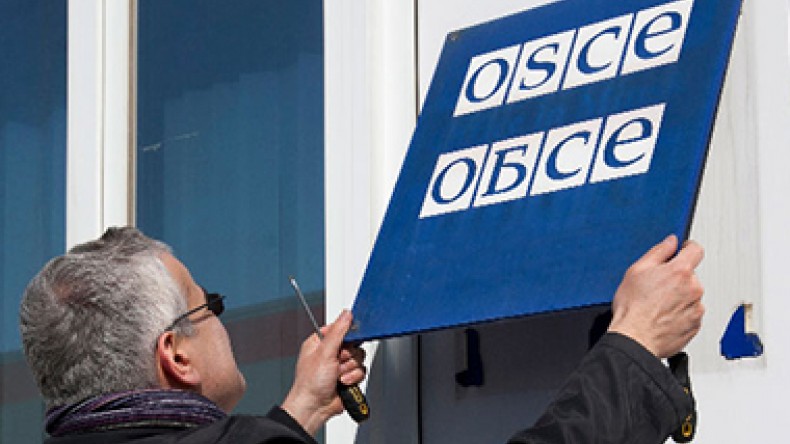These days Austria's Foreign Minister Sebastian Kurz is paying a working visit to Donetsk region. Earlier it was reported that the Ministry of Foreign Affairs of Austria will work to gradually ease sanctions imposed against Russia. On the eve of his trip the youngest minister in Europe, the 30-year-old Kurtz, told Global Times about his vision of the prospects of the OSCE.
On January 1, 2017, Austria assumed the chairmanship of the Organization for Security and Cooperation in Europe (OSCE), the world's largest regional security organization with 57 participating states from Europe, Central Asia and North America which covers a population of more than 1 billion people. In addition to the 57 participating states, the OSCE maintains privileged relations with five Asian and six Mediterranean Partners for Cooperation.
The OSCE is the central forum for developing a common security area between Vancouver and Vladivostok, focusing on promoting comprehensive security, encompassing political-military, economic and environmental as well as human aspects.
China is an important partner to many OSCE states and our common interests in fostering sustainable economic and infrastructural connectivity underline the relevance of close exchanges between China and the OSCE.

Also, the OSCE works in close cooperation with its five Asian Partners (Afghanistan, Australia, Japan, the Republic of Korea, and Thailand) in tackling global challenges of security and stability. The Asian Partners for Cooperation look toward the OSCE's comprehensive approach to security and to confidence- and security-building measures as possible sources of inspiration for their own region.
During Austria's last OSCE chairmanship in 2000, Europe was just emerging from the shockwaves and wars following the break-up of Yugoslavia. This time, we have to deal with a number of challenges and military confrontations in different stages of intensity: the conflict in and around Ukraine, the Nagorno-Karabakh conflict, the conflict in Georgia or the Transnistrian conflict in Moldova.

A block-thinking mentality that members of my generation only know from history books dealing with the Cold War is back again. If we want peace, stability and prosperity, we urgently have to build bridges between different regions and people.
Security within states and between states is increasingly undermined by radicalization, including of young people, which lends support to terrorist causes. Too many citizens seem to have lost confidence in our institutions and governance structures. This crisis of confidence is very palpable within the OSCE.
History has shown that we cannot take peace and stability for granted. If we want to live up to our aspirations, we have to take the blinkers off and look beyond our borders to break new grounds.
Hence, my priorities for the Austrian OSCE chairmanship are clear. First, defuse existing armed conflicts. We must do whatever it takes to prevent a further escalation of armed confrontations. This is only achievable if we all work together and take an inclusive approach.
Second, combat radicalization and extremism more effectively together. We need to stand united against violent extremism and terror while safe-guarding the full enjoyment of all human rights and fundamental freedoms at all times. Youth are particularly affected and will remain the focus.
Third, an increase in security is only possible with an increase in confidence. Sustainable peace and security requires cooperation, mediation and compromise.

Since its inception in the 1970s during the Cold War, the OSCE has developed tools and proceedings to promote comprehensive security and foster a culture of prevention. I believe that this integrated way of fostering international relations is highly suitable for today's complex challenges and that prevention and confidence-building need to be the order of the day again.
The OSCE cooperates closely with other international and regional organizations. On migration, the joint event by the OSCE and the International Organization for Migration "Towards a Global Compact for Safe, Orderly and Regular Migration: A Regional Perspective" in December 2016 affirmed that the OSCE has an obvious role in contributing to good migration governance at the regional level in support of the proposed UN Global Compact for Safe, Orderly and Regular Migration.
The OSCE has a long institutional memory and time-tested institutions, such as the Secretariat and the Organization's 17 Field Operations, which lay the groundwork for furthering mutual confidence. The OSCE Parliamentary Assembly brings together more than 300 members of Parliament from the OSCE participating states to facilitate dialogue and cooperation and to promote accountability.
Within the OSCE, we will seek to increase the effectiveness of our efforts to tackle common challenges and to enhance confidence and cooperation during my chairmanship. I look forward to close cooperation with all participating states and sincerely welcome the insights and collaboration of our partners outside the OSCE region.






